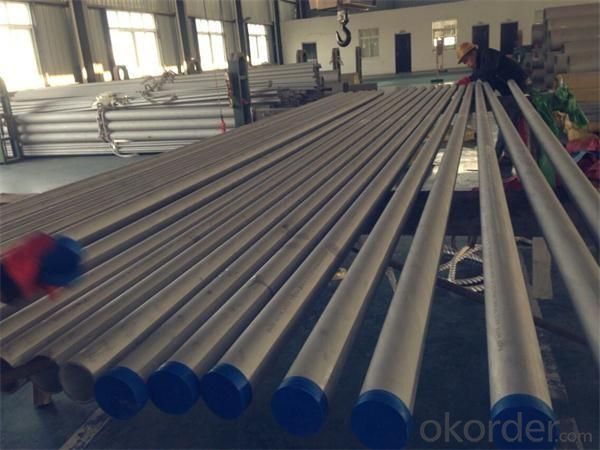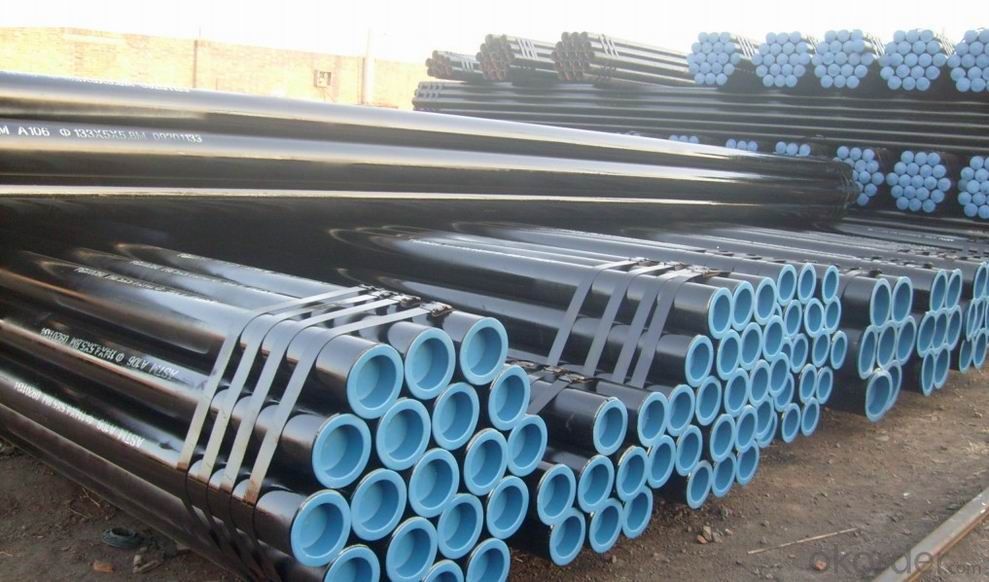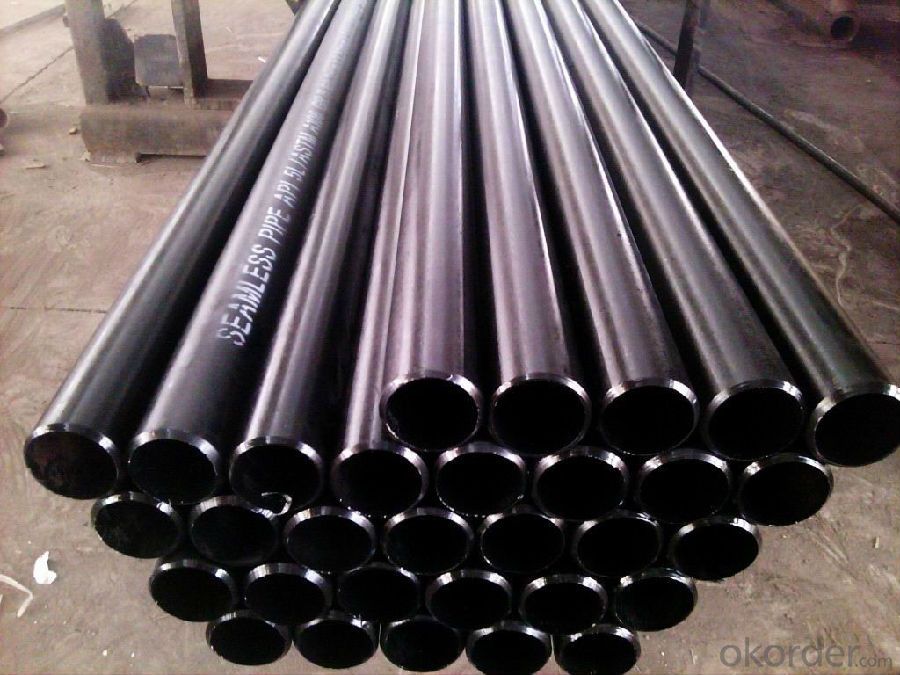4、CS Seamless Pipe Specification:
| Standard: | GB, DIN, AST ASTM A106-2006, ASTM A53-2007M |
| Grade: | 10#-45#, 16Mn 10#, 20#, 45#, 16Mn |
| Thickness: | 2 - 50 mm |
| Section Shape: | Round |
| Outer Diameter: | 21.3 - 620 mm |
| Secondary Or Not: | Non-secondary |
| Application: | Hydraulic Pipe |
| Technique: | Hot Rolled |
| Certification: | API |
| Surface Treatment: | factory state or painted black |
| Special Pipe: | Thick Wall Pipe |
| Alloy Or Not: | Non-alloy |
| Length: | 5-12M |
1.Name:seamless steel pipe
2.Material:20#(ASTM A 106/A53 GRB.API5LGRB,GB),45#,16Mn,10#.
3.Specification range:OD:21.3-610mm,WT:6-70mm,length:6-12m or according to the requirement of clients.
4.Excutive standards:GB,ASME API5L.ASTM A 106/A53,Despite of the above standards,we can also supply seamless steel pipe with standard of DIN,JIS,and so on,and also develop new products according to the requirements of our clients!
5.Surface:black lacquered,varnish coating or galvanized.
6.Ends:Beveled or square cut,plastic capped,painted.
7.Application:seamless steel pipe for low and medium pressure boiler,high pressure boiler and ship-building,liquid service,petroleum cracking,chemical fertilizer equipment,drawing-oil-equipment and structure purpose!
8.Packing:bundles wrapped with strong steel strip,seaworthy packing.
5、FAQ of CS Seamless Pipe:
①How is the quality of your products?
Our products are manufactured strictly according to national and internaional standard, and we take a test
on every pipe before delivered out. If you want see our quality certifications and all kinds of testing report, please just ask us for it.
Guaranteed: If products’ quality don’t accord to discription as we give or the promise before you place order, we promise 100% refund.
②How about price?
Yes, we are factory and be able to give you lowest price below market one, and we have a policy that “ for saving time and absolutely honest business attitude, we quote as lowest as possible for any customer, and discount can be given according to quantity”,if you like bargain and factory price is not low enough as you think, just don’t waste your time.Please trust the quotation we would give you, it is professional one.
③Why should you chose us?
Chose happens because of quality, then price, We can give you both.Additionally, we can also offer professional products inquiry, products knowledge train(for agents), smooth goods delivery, exellent customer solution proposals.Our service formula: good quality+good price+good service=customer’s trust
SGS test is available, customer inspection before shipping is welcome, third party inspection is no problem.
Any question, pls feel free to contact us !


